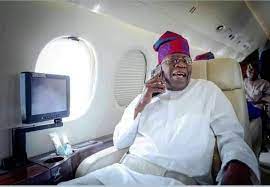I congratulate Asiwaju Bola Ahmed Tinubu on breasting the tape of the presidential poll as the winner.
It is the common expectation of all Nigerians, once more, that he would harvest his attributes of strategic imagination, brilliance of mind and intelligent insights to bear on the democratic good governance of Nigeria.
These attributes are critical elements in the shaping, formulation and implementation of a viable and sustainable foreign policy. It is therefore envisaged that under the Tinubu presidency, Nigeria’s external relations, particularly, her foreign policy orientation would be strategically robust and sync with contemporary psyche.
Foreign policy is a highly specialised area whose discharge of its remit requires the superintendence of skilled subject specialists and professionals imbued with the requisite theoretical epistemology and diplomatic competence. It is a space of power and knowledge; a melting pot of issues and ideas that reference multiplicities of individuating modes of analysis and lenses of casting gazes at issues of national and international importance.
- NIGERIA DAILY: How Politicians Lost Their Lives In The Just Concluded Elections
- Financial crisis: ICRC moves to shut Jos, PH offices, fire 150 Nigerian staff
Under the Tinubu presidency, how would the complex terrain of foreign policy be navigated and instrumentalised to inaugurate the much need transformational development paradigm in Nigeria?
Given the strategic disposition of Tinubu, we expect a foreign policy strategy that would be complementary to the desideratum of socio-economic revival of Nigeria.
In view of this projection, a lance of light should be thrown on five areas.
First, it begins with choice of the minister for foreign affairs. The choice of who is to be the minister of foreign affairs should not be constricted by considerations of ethnicity, religion, region or avuncular fraternity. To the contrary, the minister should be either a retired or serving career diplomat or someone from the para-diplomatic services; or from the academia.
In any case, the minister must be an intellectual, well grounded in the grammar of diplomacy, has conceptual grasp of the contemporary global political economy, the sociology of globalisation and the technology of global power geometrics. Above all else, the minister must be self-assured, bold, confident, eloquent and erudite and capacity to grasp the changing social, economic and cultural values.
Secondly, the ideology of Afro-centrism as the foundational philosophy of Nigeria’s foreign policy should be dismantled. All the Factors – institutional, political geographical ideological, and so on- that recommended Afro-centrism as the centerpiece of Nigeria foreign policy are in contemporary times mere historical footnotes. For so long, the agency of Nigeria foreign policy has been fossilized into the salt of Afrocentric fundamentalism.
Nigeria foreign policy should come of age with the times.
Thirdly, the focus of Nigeria foreign policy in the new dispensation should be premised on transforming Nigeria into an economic and industrial hub in Africa. The time is ripe for Nigeria to soar into the higher realm of economic cum-industrial development founded on the canons of the liberal order. If this be the case, foreign policy should be the handmaiden of this drive.
I label this brand of foreign policy philosophy as development diplomacy. It is wider in scope and dimension and its impact penetrating deeply across all facets of our national life. It is neither a foreign policy orientation that thrives on displaying economic potential and begging patrons nor accumulating external debts; on the contrary, it is a foreign policy measures and asserts Nigeria’s economic agency and development agenda.
Fourthly, Nigeria should carry herself with dignity and pride around the globe. This would entail massive psychological engineering of the national psyche and epistemological decolonization of our foreign policy. It pays to give critical attention to this issue. In the case of the former, Nigeria must stop being summoned around the globe to attend summits and retreats organised by countries: India-Africa Summit, China-Africa Summit, Turkey-Africa Summit, and so on and so forth.
Nothing could be more demeaning to the national psyche than this summit summons. If this be the new approach to diplomacy, Nigeria should try calling for a Nigeria-Asia summit, or better still, a Nigeria-Europe summit as a gesture of reciprocation and let’s see the attendance list. In the case of the latter, Nigeria should pull down the toga of colonialism that swirls around her relations with her so-called traditional allies.
Finally, the social and psychological conditions on the domestic front should be adequately attended to. Foreign policy is fertilized by the domestic environment.
The melancholic characterizations of herder-farmer conflicts, banditry, Boko Haram, urban violence, kidnapping, social strife and generalised poverty, cries of marginalization and counter-marginalization, IPOB and so on that currently permeate the fabrics of Nigeria must be addressed be decisively and timeously addressed in order to mobilise and harness the creative energy of the citizenry to participate in the development process.
No matter how good the foreign policy goals and objectives of any country may be, if the domestic environment is hostile and inclement, it would be tantamount to ceremonialism without substance.
Atah Pine is the Head of Department of Political Science, Benue State University, Makurdi

 Join Daily Trust WhatsApp Community For Quick Access To News and Happenings Around You.
Join Daily Trust WhatsApp Community For Quick Access To News and Happenings Around You.


